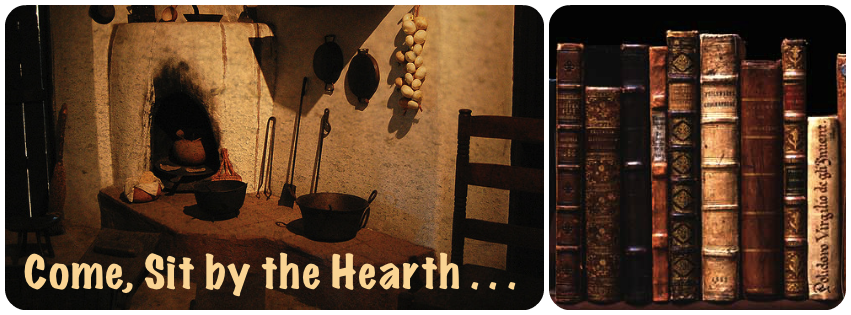I ran across this gem by accident, in our local used book store. (the only type of book store we have left)
Yuba City is a diverse community boasting the largest Indian population outside of India and its immigrant history mirrors that of the nation at large, a nation that has often been unkind to the very groups which helped to build it. (an unhappy reality)
Ms Divakaruni pulls no punches about the culture her subjects left or the one they found waiting for them. This book is about people, their pleasures and their pain. Powerful and passionate, it gives us a glimpse into a place we've never been.
The theme for this month is 'classics,' and it occured to me that what I had just read deserves to become a member of that society. After all, what makes a poem a classic? Does it evoke a feeling more profound than you expected? Does it illuminate a piece of history or society? Does it bring the entire world into its snapshot of a moment? This collection took me to a time and place very much outside my realm of experience and understanding and made me feel profoundly.
Did I mention I sort of liked it?
It's a powerful little book and I had a difficult time choosing a poem to share with you.
Yuba City is a diverse community boasting the largest Indian population outside of India and its immigrant history mirrors that of the nation at large, a nation that has often been unkind to the very groups which helped to build it. (an unhappy reality)
Ms Divakaruni pulls no punches about the culture her subjects left or the one they found waiting for them. This book is about people, their pleasures and their pain. Powerful and passionate, it gives us a glimpse into a place we've never been.
The theme for this month is 'classics,' and it occured to me that what I had just read deserves to become a member of that society. After all, what makes a poem a classic? Does it evoke a feeling more profound than you expected? Does it illuminate a piece of history or society? Does it bring the entire world into its snapshot of a moment? This collection took me to a time and place very much outside my realm of experience and understanding and made me feel profoundly.
Did I mention I sort of liked it?
It's a powerful little book and I had a difficult time choosing a poem to share with you.
Look, says Sister Seraphina, here is
the earth. And holds up, by its base, the metal globe
dented from that time when Ratna, not looking,
knocked it off its stand and was sent
to Mother Superior. And here
the axis on which it revolves, tilted
around the sun. Like this, the globe a blur now,
land and water sloshed
into one muddy grey with the thick jab
of her finger.
Ratna returned to class with weal-streaked
palms, the left one bleeding slightly. She held it curled
in her lap so it wouldn’t
stain her uniform as she wrote out,
one hundred times, I will not damage
school property again.
Now each girl sits with her silent laced shoes
flat on the classroom floor. I grip
my chair-edge. I know, were it not for the Grace
of the Holy Ghost, we would all
be swept off this madly spinning world
into perdition. Sometimes I feel it
at morning mass, six a.m. and the ground
under my knees sliding away, hot press
of air on the eardrum and the blue sleeves
of the Virgin opening
into tunnels.
Ratna didn’t cry, so Sister Seraphina
pinned to her chest a placard that said,
in large black letters, WICKED. She
was to wear it till she repented, and no one
could speak to her.
This is the way the moon
travels around the earth, Sister
says, her fist circling the globe, solid,
tight-knuckled, pink nails
clipped back to the skin. I know
the moon, dense stone
suspended in the sky’s chest,
which makes flood and madness happen and has
no light of its own. As our heathen souls
unless redeemed by Christ’s blood.
That night in the moon-flecked dormitory
we woke to Ratna thrashing around in bed,
calling for Sultan, her dog back home. She
would not quiet when told,
and when the night nun tried
to give her water, she knocked the glass
away with a swollen hand. All
over that floor, shards, glittering
like broken eyes, and against the bed-rail
the flailing sound of her bones. Until they took her
somewhere downstairs.
On this chart, points Sister, you see
the major planets of the Solar System.
Copy them carefully into your notebooks. Smudges,
and you’ll do them over. I outline
 red Mars, ringed Saturn, the far cold gleam
red Mars, ringed Saturn, the far cold gleamof Uranus, their perfect, captive turning
around a blank center which flames out
like the face of God in dreams. I will my hand
not to shake. We never saw Ratna again, and knew
not to ask.
Tomorrow we will be tested
on the various properties of the heavenly bodies,
their distance, in light years, from the sun.



Wow, the poem is disturbing. It conjures up to mind a lot of possibilities. Thanks for sharing.
ReplyDeleteA lot of these poems are discomfiting. Chitra Banerjee Divakaruni has chosen subject matter that is not simple or easily dismissed. Thank you for stopping by.
Delete